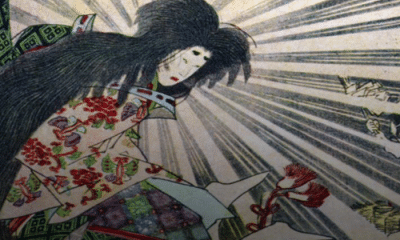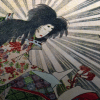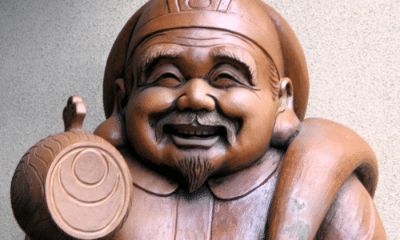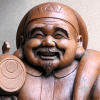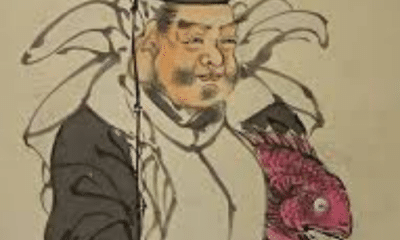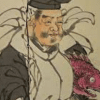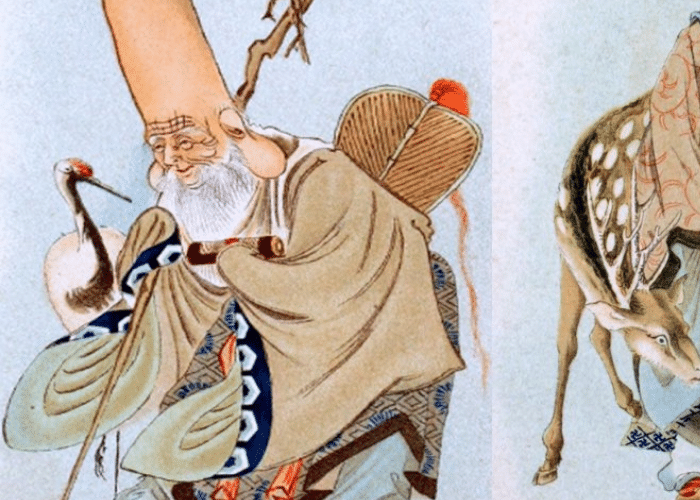
Japanese
Who is Fukurokuju in Japanese Folklore?
Who is Fukurokuju in Japanese Folklore?
Fukurokuju is one of the Seven Lucky Gods who bring good fortune to the people of Japan. Keep reading to find out where this god of longevity originated and why he seems so similar to one of his six companions.
The Seven Lucky Gods are popular figures in Japanese folklore. Representing gods from many different traditions, they are thought to bring good fortune and blessings to those who honor them.
Each god has their own attributes, represents a different virtue, and bestows their favor on different groups of people.
Within this diverse group of deities, however, there are two gods who are remarkably similar. They have so much in common that they are easily confused for one another.
Fukukujuro, a god of long life and wisdom, seems unlikely to be mistaken for anyone else. With his elongated head and aged appearance, he would stand out in most groups.
In the Seven Lucky gods, however, he is not so unique. He and Jurojin resemble each other in appearance and function for a very good reason.
Fukurokuju and the Lucky Gods
Fukurokuju is traditionally listed as one of the Seven Lucky Gods, or Sichifukojin, of Japan. Combining the traditions of several religions, these gods are a part of folklore and popular culture rather than of one particular faith.
The Seven Lucky Gods have origins in China and India as well as Japan. Like many of these characters, Fukurokuju is said to have been born in China and practiced Taoism.
During the Song Dynasty, Fukukurokujo is said to have lived as a hermit who was so devout that he could survive without consuming any food. Some believed that he was the reincarnation of the powerful god Xuanwu.
Fukurokuju gained his immortality after leading a very long human life of devotion and asceticism. Because he lived so long as a mortal, he is often depicted as a very old man.
Fukurokuju is shown as a bald man with a long, white beard or whiskers. His baldness is accentuated by the fact that he has an unnaturally, sometimes grotesquely, elongated forehead.
He is often shown with attributes that highlight his age and longevity.
He carries a wooden staff with a long scroll tied to it. While some say the staff contains magical writings of scripture, others claim that it is a book of fate that lists the lifespan of every person who will ever live.
A white crane is often shown at his side. In both Chinese and Japanese culture, cranes are thought of as a symbol of long life.
Another animal that is sometimes shown with Fukurokuju is a black deer. According to folk belief, a deer turns black when it reaches two thousand years old.
As an aged god, Fukurokuju is believed to bestow similar longevity on others. He is also the only one of the Seven Lucky Gods who can supposedly bring the dead back to life.
He is also a patron of wisdom. His years of solitary study made him an incredibly wise and thoughtful individual.
The story and imagery of Fukurokuju are not at all unique, however. Even among the Lucky Gods, he seems remarkably similar to another deity.
My Modern Interpretation
Fukurokuju and Jurojin, another of the Lucky Gods, are so similar that they are easily mistaken for one another. Their stories and iconography are virtually identical.
They are so alike that Fukurokuju is occasionally replaced by a goddess from Hinduism, Kichijoten, to avoid overlapping domains and confusion between the two. Most images of the Seven Lucky Gods, however, contain both of the aged Chinese patrons of longevity.
The fact that Fukurokuju and Jurojin are so similar is not coincidental. Most historians believe that Fukujuro and Jurojin’s stories originated from the same source.
Like Fukurokuju, Jurojin was a hermit who lived during the Song Dynasty. He was not said to be the reincarnation of Xuanwu, however, but an embodiment of a celestial power.
Jurojin was also known as the Old Man of the South Pole. This polar star was one of several that was seen in Taoism as an ancient deity.
Legends claimed that the Old Man of the South Pole was incarnated as a human, Jurojin, to perform miracles and act as a teacher.
Chinese folklore said that the god of the North Star fixed the date of every person’s death, while the god of the southern star arranged the date of death. This meant that the Old Man of the South Pole could grant longevity by moving back this date.
This character was passed down to Japan in two separate traditions. One focused on his role as the god of the southern polar star while the other focused on his life as a hermit, both including the idea of longevity.
These two traditions likely both originated in China, where the legends and images of many Taoist immortals evolved over time. Eventually, the different aspects of the same character had split enough to be called by two names.
When these two figures were introduced into Japanese folklore, it is likely that their shared origins had been forgotten. It is obvious, however, that the similarities between them were recognized.
Legends emerged in Japan that created new relationships between Fukurokuju and Jurojin. Although they were separate characters, it was clear that there was some link between them.
One popular story said that Fukurokuju was the grandfather of Jurojin. When he resumed his place in the heavens, his grandson continued his teachings.
Another idea emerged that was somewhat closer to the likely truth. Some people believed that Fukurokuju and Jurojin were separate beings that sometimes inhabited the same body in the mortal world.
Even though Fukurokuju and Jurojin were closely related, they were both considered exceptional and virtuous enough on their own to be included in the Seven Lucky Gods.
In Summary
Fukurokuju is one of Japan’s Seven Lucky Gods. According to tradition, these gods can bestow both specific blessings and general wealth and good fortune on their followers.
He is a god of longevity and wisdom. His imagery reflects his age, with an elongated bald head, white beard, and animals that represent a long lifespan.
Adopted from Chinese Taoist legends, Fukurokuju was said to have lived as a hermit during China’s Song Dynasty. Many believed that he was not only an ancient and learned Taoist teacher, but also the human incarnation of an ancient and venerable god.
Both his imagery and his story are remarkably similar to those of Jurojin, another of the Seven Lucky Gods. Both come from Chinese Taoist traditions, have the same attributes of longevity, and were hermits and teachers in their lives.
Most historians believe that both of these figures developed from the same god, known in English as The Old Man of the South Pole. This celestial god was thought to grant longevity because he set the dates for each person’s death.
Traditions involving this figure, or mortal incarnations of him, were passed down to Japan under different names. Although they were typically seen as separate gods, Japanese folklore recognized their obvious similarities and created stories of relationships between them.
Fukurokuju is so similar to Jurojin that some versions of the Seven Lucky Gods do not include him at all. Another goddess is substituted to avoid confusion and redundancy.
Most versions of the Seven Lucky Gods, however, include both Fukurokuju and Jurojin. Although they are similar and likely come from the same source, they and their virtues are considered important enough to keep both in the group.


